Lockdown restrictions have pushed us into recession along with a health crisis we have never seen before. Businesses are struggling to make ends meet, and many have had to take tough decisions like layoffs, frozen hiring, salary cuts, and more. The year has also shown us how vital digitalization is and why data science is the driving force in the post-COVID era.
One of the most prominent examples is remote work and how people have adapted to such a form of work. Businesses are accepting digital tools to optimize their functionality, and this is where data science comes in.
Digital tools not only help businesses measure ROI but also determines every small or big aspect like regulating spends, analyzing the long-term impact, and more. The change is making more companies include AI, VR, AR, and cybersecurity to transform their businesses.
Why is data science essential for business continuity?
Here are some of the reasons why adopting a data science course is crucial for current and aspiring businesses leaders:
Analyzing and forecasting
The pandemic gave us clarity of how uncertain times can be. Businesses can go through drastic changes due to such conditions unexpectedly.
With the help of data analytics, we can predict our future better. It helps us analyze risks and develop strategies to mitigate them.
Companies can use historical data from the current situation to estimate t
he trends of the future. Data science training can also give us cues of future obstacles and how to handle them efficiently.

Moreover, historical data can help plan different outcomes of businesses during an unfortunate phase.
Assessing resources for maximum utilization
While analyzing risks and mitigating them fast can prevent disrupting business processes, knowing the way to put resources to use during such times is also crucial.
Every company needs to imply analytic practices to get through critical times and understand the state of their business.
One example of this would be setting up an analytics team for finance. The process will help a business find how changes in the economy can or are affecting their business. Data assists in allocating resources and promotes effective decision-making.
Identify Opportunities
When you adopt data science, you can identify new opportunities for business continuity. The process of analyzing available data resources helps catch loopholes early and find new possibilities to overcome them.
Currently, most companies are aggregating COVID data and combining the same with employee data. It helps one understand better ways to support employees in this crisis. For example, updating a dashboard to check geographical data helps offices take preventive measures or recommend closedown. HR’s are using such data to determine if offices are safe to open or not.
Necessity of cybersecurity
As soon as you step into the data science career, you will know how critical cybersecurity is. It is the most vulnerable risk that any form of data can pose.
Much of this has been at stake since people have been working remotely. There is also an increase in cloud services, which need constant technical tracking, maintenance, and recovery.
Even when companies work remotely, they have to imply IT security to safeguard data exposure and threat. Data science and AI give us solutions to cyber threats and monitor network traffics more effectively across VPNs. It quickly detects points of breaches and infringement in real-time.
Helps in quick changes of services
E-commerce and retail industries use data science and AI to attract customers; both online and offline. Companies now leverage AI-powered solutions to get insights into changing consumer demands. Such data helps optimize the supply chain and minimize disruption.
 There is a high usage of AI chatbots to get quick solutions to external factors. These chatbots communicate with customers, answer their questions, and record their responses. It is assumed that the usage of chatbots will multiply by 50 times compared to what it was before COVID.
There is a high usage of AI chatbots to get quick solutions to external factors. These chatbots communicate with customers, answer their questions, and record their responses. It is assumed that the usage of chatbots will multiply by 50 times compared to what it was before COVID.
Final thoughts
Business continuity is critical and crucial. More and more companies need to incorporate data science to make businesses effective and reliable. While it has been vital for a long time already, it will become non-negotiable in the post-COVID era. The above-listed reasons give you a brief insight into the bigger picture and why data science is the future of your business goals.

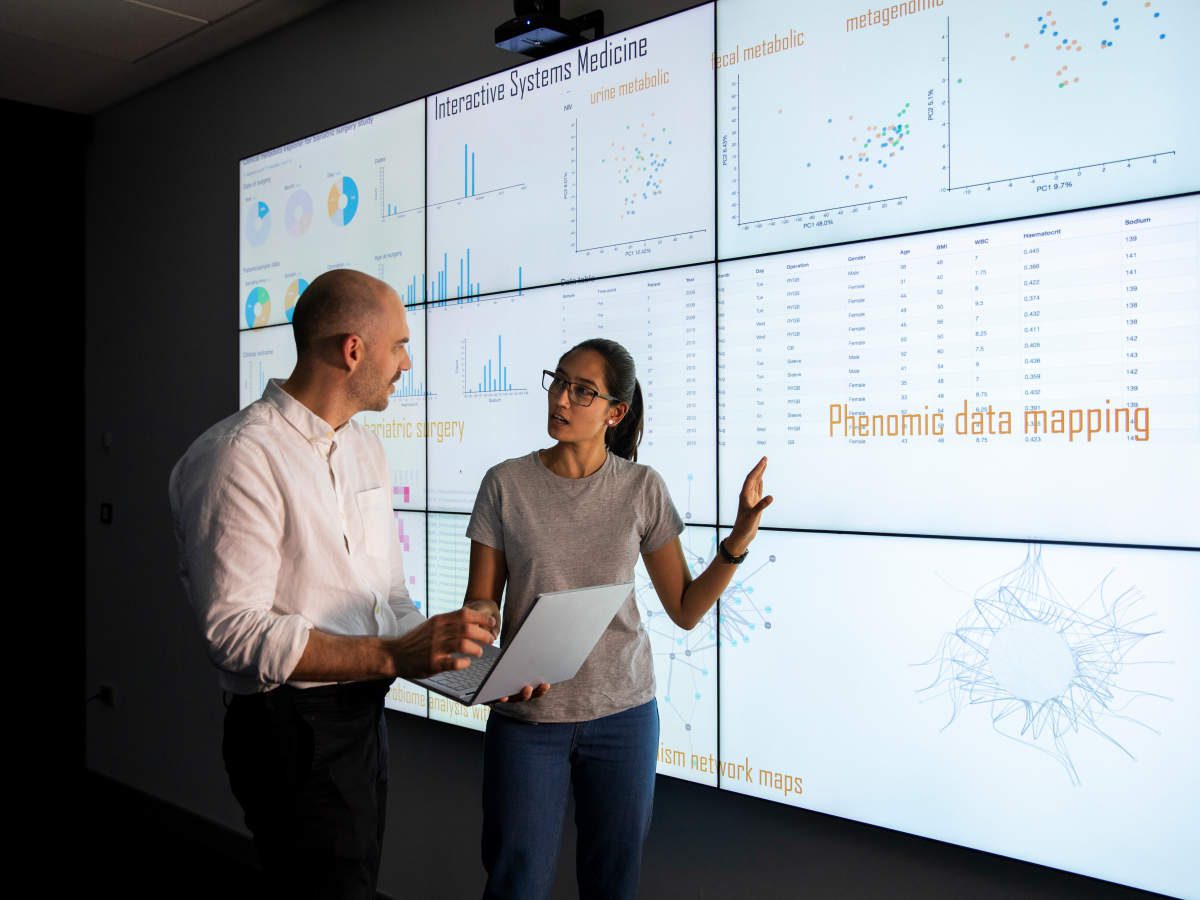
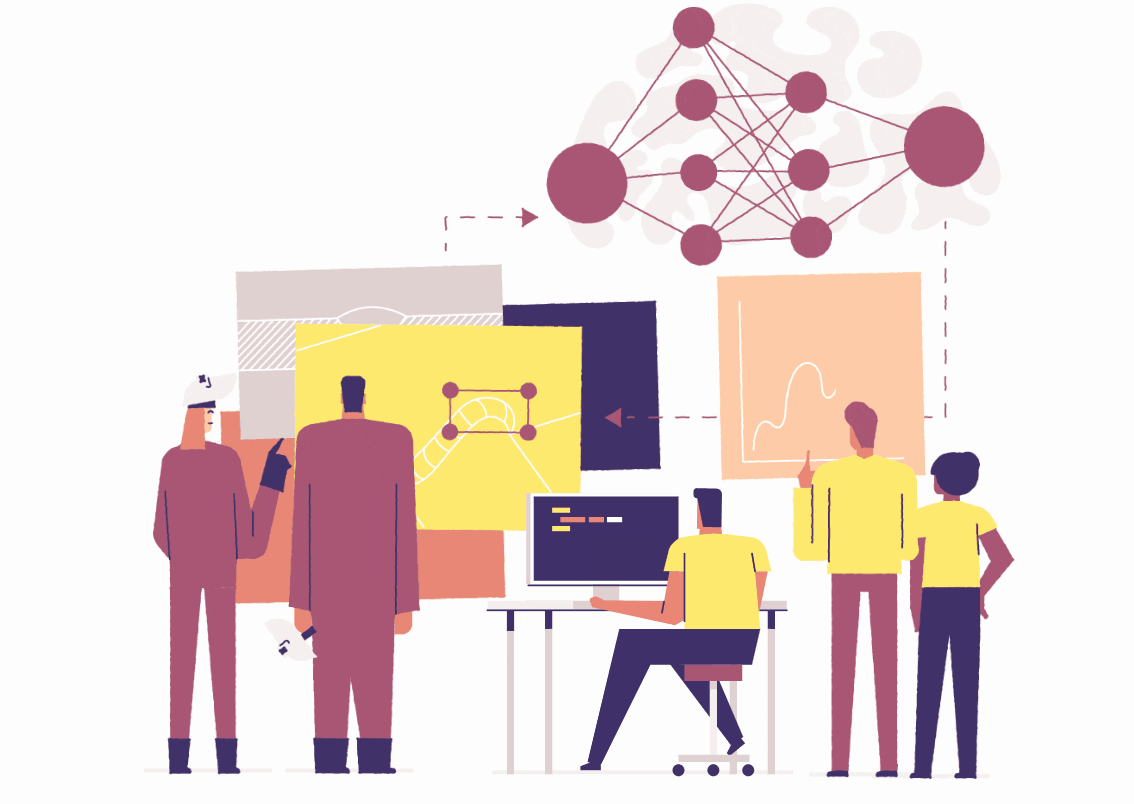
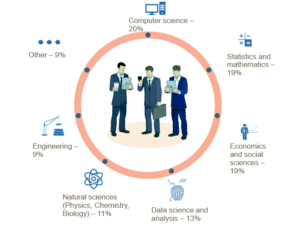 The majority of the data science models are built using one or more, known or unknown variables. Thus, the in-depth understanding of multivariate calculus is the key requirement to develop Machine Learning models.
The majority of the data science models are built using one or more, known or unknown variables. Thus, the in-depth understanding of multivariate calculus is the key requirement to develop Machine Learning models.
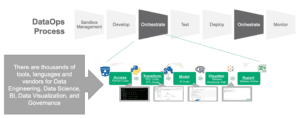 DataOps plays a major role in building best practices throughout a function. Through continuous production, DataOps helps organizations to deliver value to a range of stakeholders.
DataOps plays a major role in building best practices throughout a function. Through continuous production, DataOps helps organizations to deliver value to a range of stakeholders.
 Data scientists are technical personals who are fluent in data analysis software and use them to predict market patterns. Firms will require more skilled data scientists in the future due to the need to process & analyze big data.
Data scientists are technical personals who are fluent in data analysis software and use them to predict market patterns. Firms will require more skilled data scientists in the future due to the need to process & analyze big data. They attempt to make the database framework better. With the rise of automation in data science, data architects are in huge demand to provide better solutions.
They attempt to make the database framework better. With the rise of automation in data science, data architects are in huge demand to provide better solutions.

 For this, students can join vocational programs in Finance and Analytics from reputed institutions. Imarticus is one such renowned organization that is offering courses in these subjects to train students and make them job-ready for the business world. By learning these courses students get:
For this, students can join vocational programs in Finance and Analytics from reputed institutions. Imarticus is one such renowned organization that is offering courses in these subjects to train students and make them job-ready for the business world. By learning these courses students get: Fee Waiver on PG Classroom Programs – Up to 25% off
Fee Waiver on PG Classroom Programs – Up to 25% off
 This is an interesting and highly practical way to gain real-life
This is an interesting and highly practical way to gain real-life  These events are excellent venues for networking with like-minded professionals who work for a range of different organizations. A simple Google search with keywords like Data Science meetups, along with the name of your city, will generate information about ongoing or upcoming events near you.
These events are excellent venues for networking with like-minded professionals who work for a range of different organizations. A simple Google search with keywords like Data Science meetups, along with the name of your city, will generate information about ongoing or upcoming events near you.
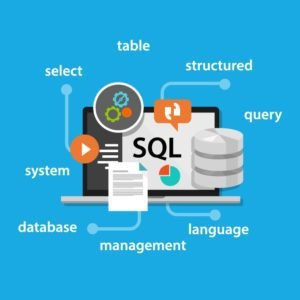 SQL is used to access and manipulate data. It helps to store data, access whenever you need it, and retrieve if need be. SQL training will give you a much-required head start in the highly competitive job market.
SQL is used to access and manipulate data. It helps to store data, access whenever you need it, and retrieve if need be. SQL training will give you a much-required head start in the highly competitive job market.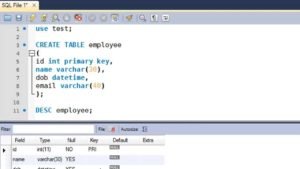 You may follow the steps given below to create a database.
You may follow the steps given below to create a database. Suppose you want to create a table with the following features:
Suppose you want to create a table with the following features:
 One of the most basic and key responsibilities of data scientists in an organization is to identify existing challenges and problems that a business is facing and finding solutions to remedy the situation. This might seem like a generic responsibility of every important professional but the main difference here is that data scientists use tons of relevant data to find the problem.
One of the most basic and key responsibilities of data scientists in an organization is to identify existing challenges and problems that a business is facing and finding solutions to remedy the situation. This might seem like a generic responsibility of every important professional but the main difference here is that data scientists use tons of relevant data to find the problem. The 21st Century businesses are complex than ever, there are various factors that determine the fate of an organization. With the number of complexities that exist, it’s very difficult to figure out what impacts your business and how it does that.
The 21st Century businesses are complex than ever, there are various factors that determine the fate of an organization. With the number of complexities that exist, it’s very difficult to figure out what impacts your business and how it does that. Data science is one of the most in-demand skills in the industry and given the wide range of applications that it has, the demand for a
Data science is one of the most in-demand skills in the industry and given the wide range of applications that it has, the demand for a 
